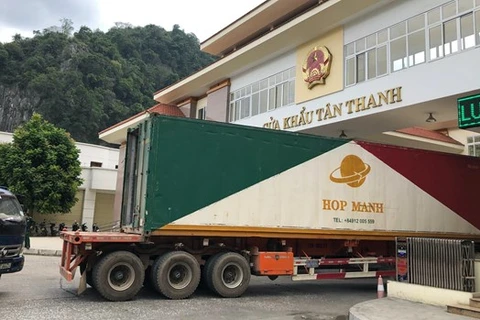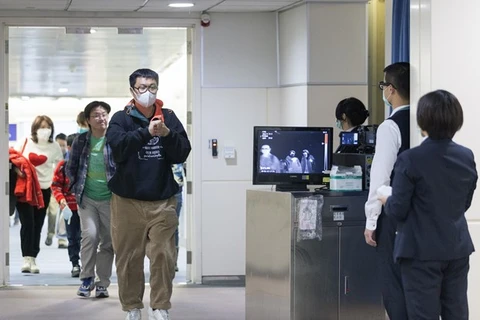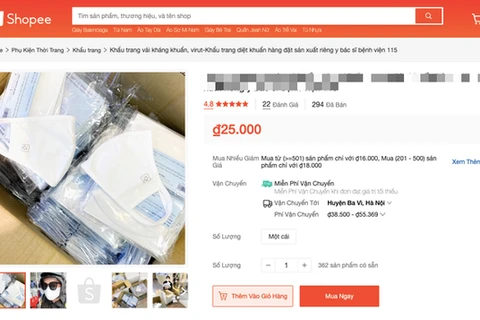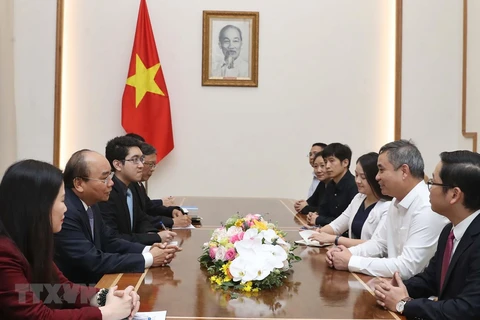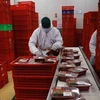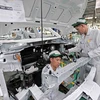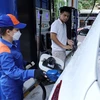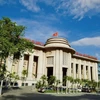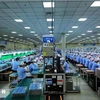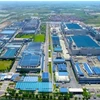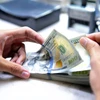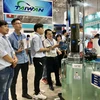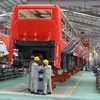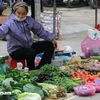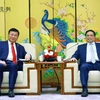Hanoi (VNA) - The Ministry of Industry and Trade (MoIT) will continue to support local businesses after the coronavirus epidemic is stamped out, Minister Tran Tuan Anh has said.
Anh made the statement after visits to the Ha Tay Chemical-Weave Co. Ltd. and the Garment 10 Corporation on March 5 in Hanoi to study difficulties at local businesses during the novel coronavirus (COVID-19) epidemic.
If the epidemic is controlled in the second quarter, local businesses should take advantage from Q3 at home and abroad and focus resources to resume their business, he said.
The minister added that the ministry would work to create favourable conditions for local firms.
Since the coronavirus outbreak started, the ministry had evaluated the impacts of the disease on Vietnam's economic and trade activities and had proposed solutions to other Government bodies to help businesses, he said.
During the minsiter’s visit to Garment 10 Corporation, Than Duc Viet, the company's general director, said the corporation’s major products were shirts, suits and trousers. The epidemic had caused a lack of raw material for those products.
This had led to an interruption in production, he said. Therefore, the corporation’s total revenue this year was expected to fall by 10 percent against last year while revenue in the first quarter was also estimated to drop by 10 percent year-on-year.
Nguyen Thanh Tung, general director of the Ha Tay Chemical-Weave Co, Ltd, said his company’s main products were vulcanised shoes with a localisation rate of more than 70 percent, with the remaining raw materials imported mainly from China. The epidemic had forced the company to seek other suppliers at home and abroad.
If the epidemic was prolonged, the firm might run out of material for production, he said.
The minister said, in the long term, Vietnam needed to develop the support industry for the textile, garment, leather and footwear industries. Local enterprises could not depend solely on raw material imports./.
Anh made the statement after visits to the Ha Tay Chemical-Weave Co. Ltd. and the Garment 10 Corporation on March 5 in Hanoi to study difficulties at local businesses during the novel coronavirus (COVID-19) epidemic.
If the epidemic is controlled in the second quarter, local businesses should take advantage from Q3 at home and abroad and focus resources to resume their business, he said.
The minister added that the ministry would work to create favourable conditions for local firms.
Since the coronavirus outbreak started, the ministry had evaluated the impacts of the disease on Vietnam's economic and trade activities and had proposed solutions to other Government bodies to help businesses, he said.
During the minsiter’s visit to Garment 10 Corporation, Than Duc Viet, the company's general director, said the corporation’s major products were shirts, suits and trousers. The epidemic had caused a lack of raw material for those products.
This had led to an interruption in production, he said. Therefore, the corporation’s total revenue this year was expected to fall by 10 percent against last year while revenue in the first quarter was also estimated to drop by 10 percent year-on-year.
Nguyen Thanh Tung, general director of the Ha Tay Chemical-Weave Co, Ltd, said his company’s main products were vulcanised shoes with a localisation rate of more than 70 percent, with the remaining raw materials imported mainly from China. The epidemic had forced the company to seek other suppliers at home and abroad.
If the epidemic was prolonged, the firm might run out of material for production, he said.
The minister said, in the long term, Vietnam needed to develop the support industry for the textile, garment, leather and footwear industries. Local enterprises could not depend solely on raw material imports./.
VNA

